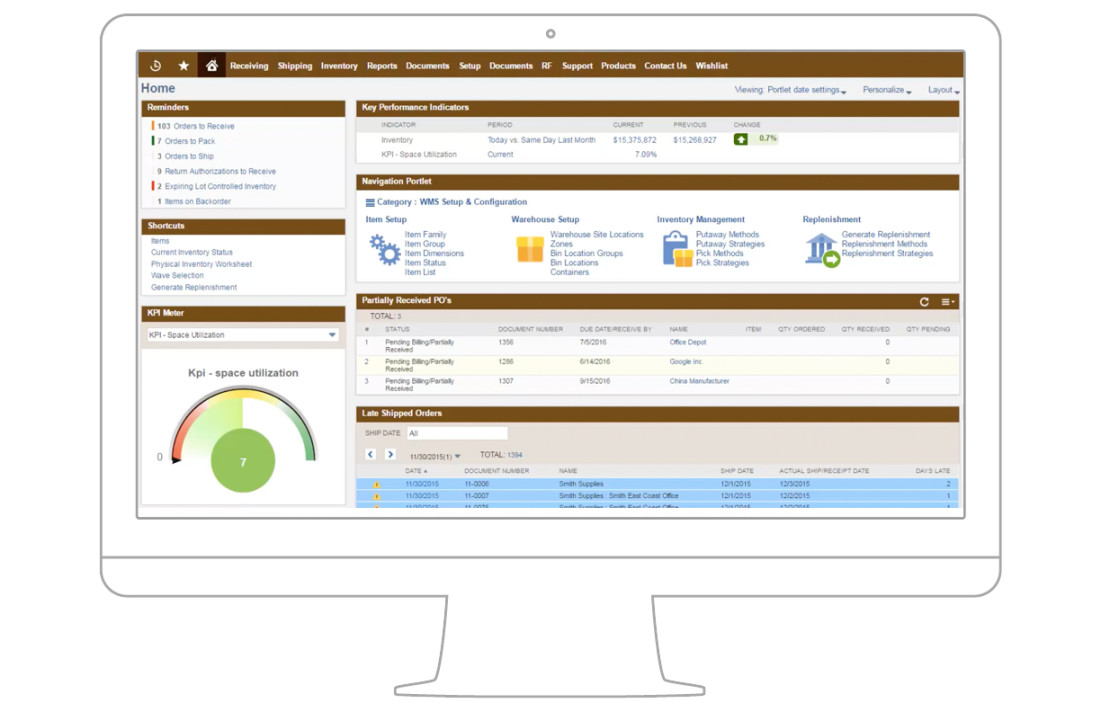Netsuite Warehouse Management System (WMS) Cost: Explained and Analyzed
What do you mean by Netsuite Warehouse Management System (WMS)?
Netsuite Warehouse Management System (WMS) is a comprehensive software solution designed to optimize warehouse operations and improve overall supply chain management efficiency. It is a cloud-based system that combines advanced functionalities such as inventory control, order fulfillment, labor management, and real-time visibility into a unified platform.
How does Netsuite Warehouse Management System (WMS) work?
Netsuite WMS streamlines warehouse operations by automating various tasks and providing real-time insights into inventory levels, order status, and overall warehouse performance. It utilizes barcode scanning, wireless technology, and integration capabilities to enhance accuracy, speed, and productivity.

The system enables efficient receiving, putaway, picking, packing, and shipping processes, ensuring optimal utilization of warehouse space and resources. It also facilitates cycle counting, demand planning, and order prioritization to minimize stockouts and improve customer satisfaction.
What is known about the cost of implementing Netsuite Warehouse Management System (WMS)?
Costs associated with implementing Netsuite WMS can vary depending on various factors, including the size of the warehouse, complexity of operations, customization requirements, and number of users. It is essential to consider both upfront expenses and ongoing costs when evaluating the total cost of ownership.
The primary components contributing to the cost of Netsuite WMS implementation include:
Software License: Netsuite offers flexible licensing options based on the specific needs of the organization. The cost is typically determined by the number of users and the desired feature set.
Implementation Services: Organizations may require professional assistance for system setup, configuration, data migration, and integration with existing systems. Implementation costs vary based on the scope and complexity of the project.
Training and Support: Netsuite provides training resources and ongoing support to ensure users can effectively utilize the WMS. Training costs may include instructor-led sessions, online training modules, and user documentation.
Solutions for managing Netsuite Warehouse Management System (WMS) costs
While the cost of implementing Netsuite WMS can be significant, there are several strategies to optimize expenses and maximize return on investment:
Thorough Evaluation: Conduct a comprehensive assessment of your warehouse operations and requirements before implementing Netsuite WMS. This will help identify the specific features and functionalities required, avoiding unnecessary customization.
Proper Planning: Create a detailed implementation plan in collaboration with Netsuite and any third-party consultants involved. Clear milestones, timelines, and responsibilities will ensure smooth execution and minimize unexpected costs.
User Training: Invest in comprehensive training programs for your warehouse staff to enhance their proficiency in operating Netsuite WMS. Well-trained users can leverage the system’s capabilities more effectively, reducing the need for additional support in the long run.
Regular System Maintenance: Adhere to scheduled maintenance activities and keep the system up to date with the latest software patches and upgrades. This helps prevent potential issues and system downtime, reducing any associated costs.
Utilize Available Resources: Take advantage of Netsuite’s customer support, user forums, and knowledge base to address any system-related queries or issues. Engaging with the user community can provide valuable insights and potential cost-saving tips.
Information about Netsuite Warehouse Management System (WMS)
Netsuite Warehouse Management System (WMS) is a robust solution designed to streamline warehouse operations and optimize supply chain management. With its cloud-based architecture, it offers real-time visibility, efficient inventory control, and improved order fulfillment capabilities.
Key features and functionalities of Netsuite WMS include:
Real-time Inventory Tracking: Gain accurate insights into stock levels, locations, and availability across multiple warehouses or distribution centers.
Advanced Order Fulfillment: Automate order processing, picking, and packing to improve fulfillment speed and accuracy.
Labor Management: Optimize workforce productivity through performance tracking, task allocation, and labor planning.
Integration Capabilities: Seamlessly connect with other systems, such as ERP, CRM, and e-commerce platforms, for enhanced data exchange and process synchronization.
Mobile Functionality: Enable barcode scanning, wireless communication, and mobile device integration for on-the-go warehouse management.
Reporting and Analytics: Access real-time dashboards and reports to monitor key performance indicators (KPIs), identify trends, and make data-driven decisions.
Conclusion
Implementing Netsuite Warehouse Management System (WMS) can significantly enhance warehouse operations and overall supply chain efficiency. While the cost of implementation should be carefully evaluated, the benefits offered by the system justify the investment. By following best practices, leveraging available resources, and focusing on proper planning and training, organizations can minimize costs and achieve optimal results with Netsuite WMS.